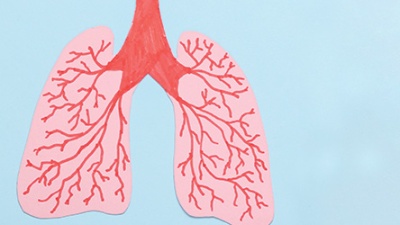Topic: research

New Smartphone-Sized Device Can Test for Tuberculosis
Two researchers developed a handheld tuberculosis diagnostic device that could revolutionize treatment for the disease.

Pulmonary Fibrosis Has No Cure. Could a Cancer Drug Hold the Answer?
Researchers have identified a potential new treatment for idiopathic pulmonary fibrosis, which currently has no cure.

Making Quantum Waves
2025 is the International Year of Quantum and thanks to the breadth of quantum research taking place at Tulane, the university is poised to celebrate.

A Century of Discovery and Impact
Tulane continues to shape global scholarship, connect cultures and empower generations of students in the study of a vibrant, vital region.

Skip the Evening Espresso?
A new study found that morning coffee drinkers have a lower risk of dying of heart disease than those who drink it throughout the day.

Achievement Abounds
The Research, Scholarship and Artistic Achievement Awards recognize Tulane faculty, whose works elevate Tulane’s prominence as a top-level research institution.

President Biden Announces Funding to Tulane for Cancer ‘Moonshot’ Project
President Joseph R. Biden Jr. and First Lady Jill Biden visited Tulane to celebrate a project that promises to bring a new kind of magic to the world of cancer treatment.

Students’ Innovative Design Selected as Finalist in NASA Contest
Senior engineering students brought their design for a lunar rover to a NASA contest in Florida as finalists.

Can AI Tell You If You Have Osteoporosis?
Tulane researchers developed a new deep learning algorithm to predict osteoporosis risk.








































